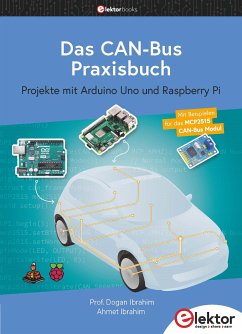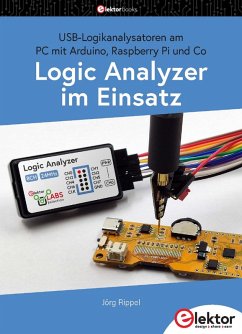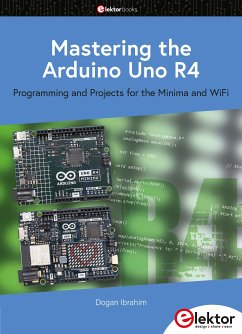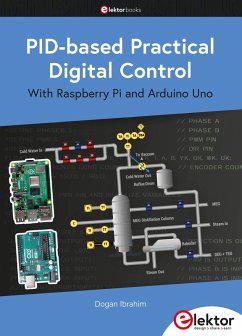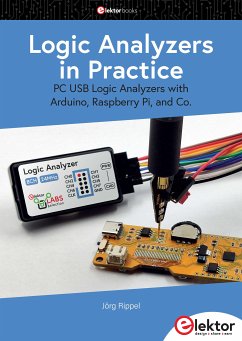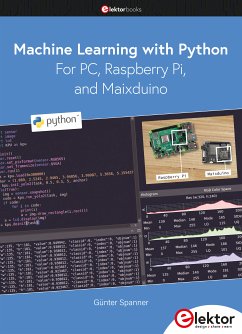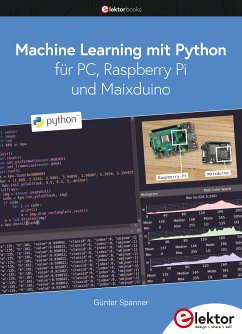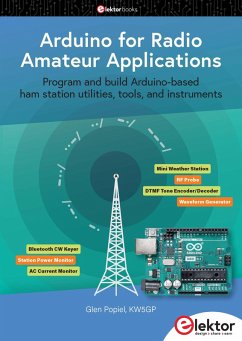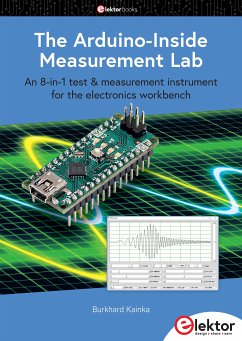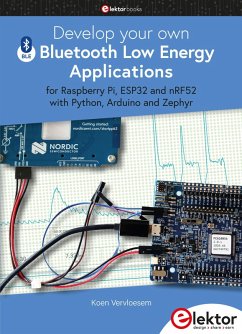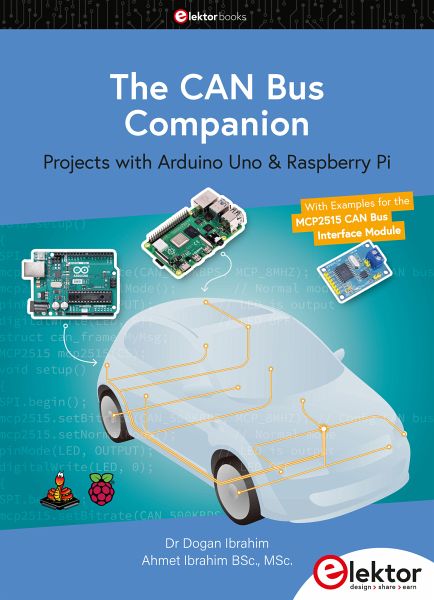
The CAN Bus Companion (eBook, PDF)
Projects with Arduino Uno & Raspberry Pi
Versandkostenfrei!
Sofort per Download lieferbar
24,99 €
inkl. MwSt.
Weitere Ausgaben:

PAYBACK Punkte
0 °P sammeln!
This book details the use of the Arduino Uno and the Raspberry Pi 4 in practical CAN bus based projects. Using either the Arduino Uno or the Raspberry Pi with off -the-shelf CAN bus interface modules considerably ease developing, debugging, and testing CAN bus based projects. This book is written for students, practicing engineers, enthusiasts, and for everyone else wanting to learn more about the CAN bus and its applications. The book assumes that the reader has some knowledge of basic electronics. Knowledge of the C and Python programming languages and programming the Arduino Uno using its I...
This book details the use of the Arduino Uno and the Raspberry Pi 4 in practical CAN bus based projects. Using either the Arduino Uno or the Raspberry Pi with off -the-shelf CAN bus interface modules considerably ease developing, debugging, and testing CAN bus based projects. This book is written for students, practicing engineers, enthusiasts, and for everyone else wanting to learn more about the CAN bus and its applications. The book assumes that the reader has some knowledge of basic electronics. Knowledge of the C and Python programming languages and programming the Arduino Uno using its IDE and Raspberry Pi will be useful, especially if the reader intends to develop microcontroller-based projects using the CAN bus. The book should be a useful source of reference material for anyone interested in finding answers to questions such as: > What bus systems are available for the automotive industry? > What are the principles of the CAN bus? > How can I create a physical CAN bus? > What types of frames (or data packets) are available in a CAN bus system? > How can errors be detected in a CAN bus system and how dependable is a CAN bus system? > What types of CAN bus controllers exist? > How do I use the MCP2515 CAN bus controller? > How do I create 2-node Arduino Uno-based CAN bus projects? > How do I create 3-node Arduino Uno-based CAN bus projects? > How do I set the acceptance masks and acceptance filters? > How do I analyze data on the CAN bus? > How do I create 2-node Raspberry Pi-based CAN bus projects? > How do I create 3-node Raspberry Pi-based CAN bus projects? The full program listings of all the projects discussed in the book may be downloaded free of charge from the Elektor Store website, elektor.com (search for: book title).
Dieser Download kann aus rechtlichen Gründen nur mit Rechnungsadresse in A, B, BG, CY, CZ, D, DK, EW, E, FIN, F, GR, H, IRL, I, LT, L, LR, M, NL, PL, P, R, S, SLO, SK ausgeliefert werden.




